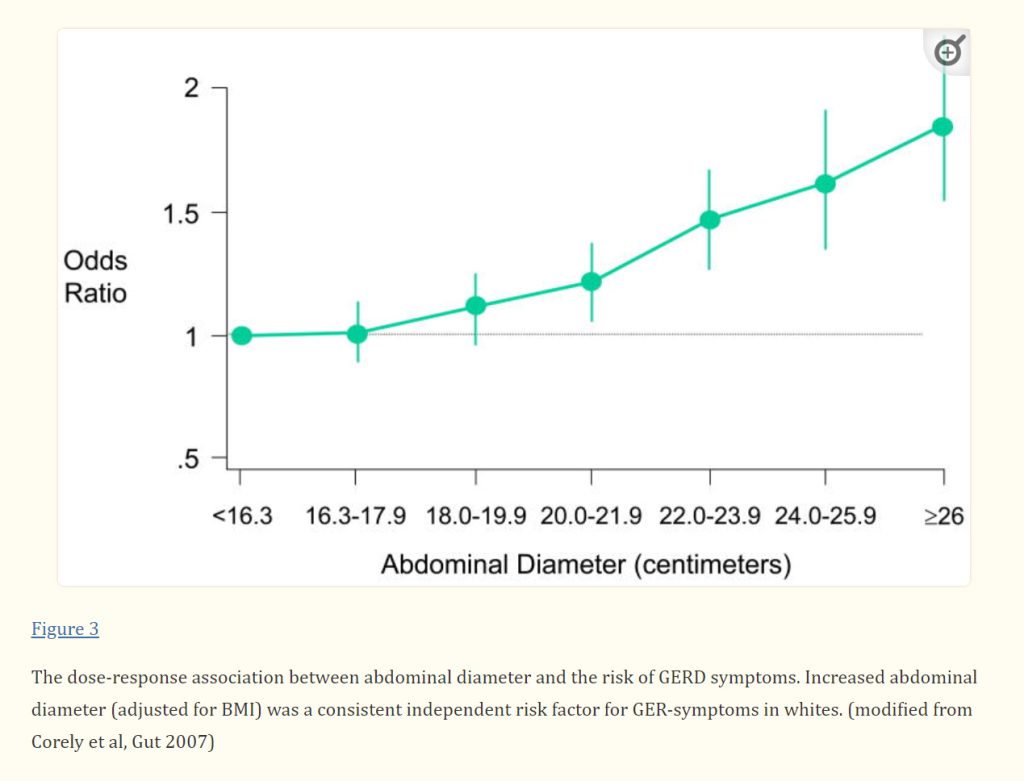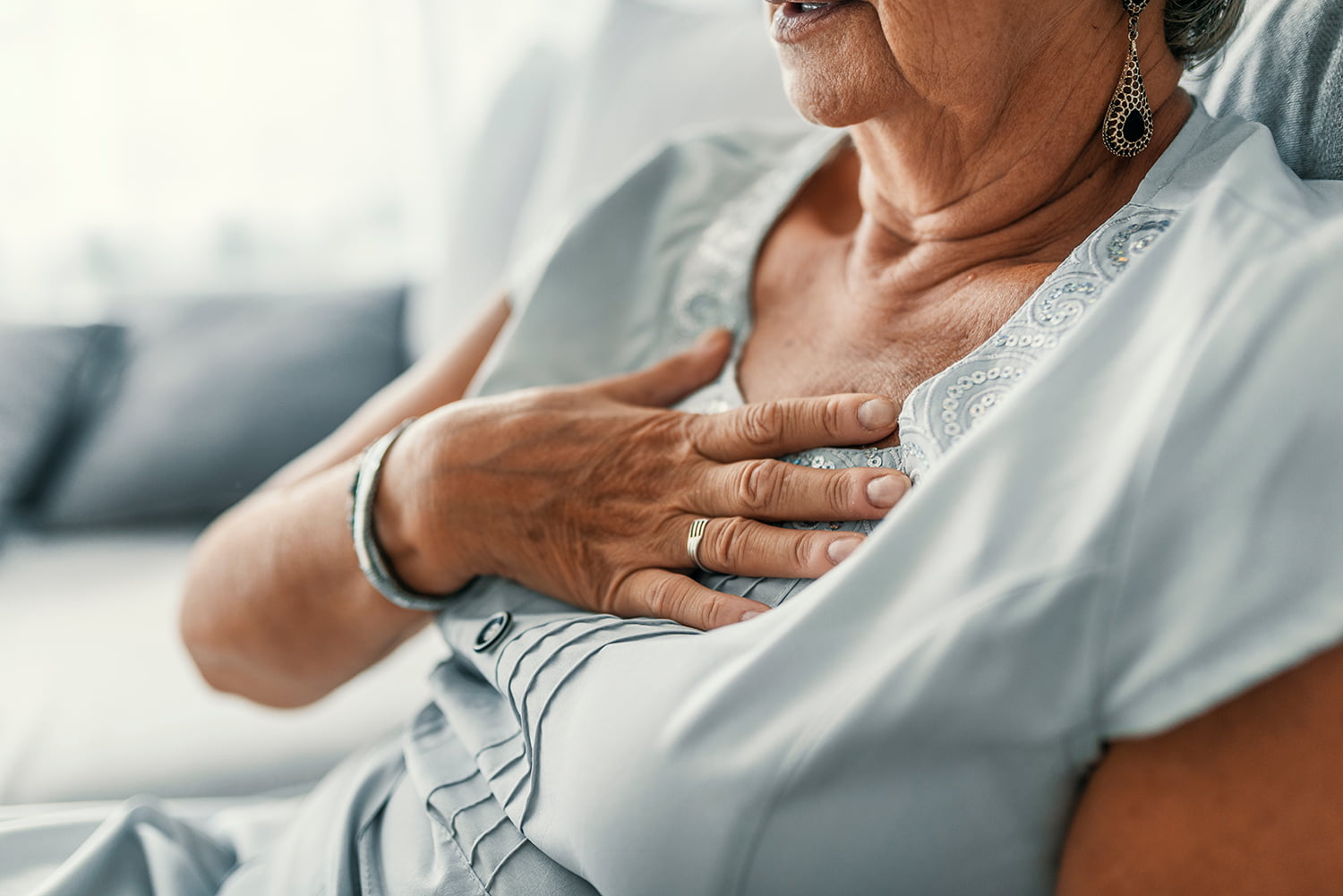GERD After Gastric Bypass Surgery: What to Expect
Gastroesophageal reflux disease (GERD) is a common complication of being overweight. The risk factors for developing GERD can be hereditary, anatomical, or lifestyle-related, with weight being a significant contributor. There’s a two-fold increase in the risk of developing GERD for those who are overweight.
GERD often results in many uncomfortable symptoms and can lead to serious complications over time. Gastric bypass for GERD has been proven to significantly reduce symptoms, including acid reflux and heartburn, which could even result in remission in some cases.
Read more to discover how bariatric surgery may affect your GERD-related symptoms and what steps you can take if it’s a problem.

Quick Answer: GERD After Weight Loss Surgery
GERD after bariatric surgery can be better or worse depending on individual circumstances and the type of surgery performed. Some bariatric procedures have a higher risk of developing GERD compared to others.
Gastric bypass for GERD is the most common and effective procedure for patients struggling with weight and symptoms of GERD. In some cases, gastric sleeve has higher rates of GERD than gastric bypass and may not be a good choice for some patients.
It’s possible that if you have a hiatal hernia, the condition could also be contributing to your GERD symptoms. Fixing the hiatal hernia during bariatric surgery can greatly reduce the recurrence of both getting another hiatal hernia and experiencing GERD after surgery. It’s important to consult with your healthcare provider when it comes to GERD and weight loss surgery.
How Weight Affects Acid Reflux
The more a person weighs, the worse their acid reflux will be. Acid reflux is a symptom of GERD and happens when some of the contents of the stomach, including stomach acid, make their way up into the esophagus. Acid reflux is sometimes called heartburn, a painful, burning sensation felt around the chest.
There are multiple reasons people who are overweight experience worse acid reflux:
- Increased intra-abdominal pressure: Excess fat can press against the internal organs, including the stomach, and force the contents of the stomach upwards into the esophagus.
- Impaired gastric emptying: Delayed gastric emptying happens when the food doesn’t travel to the small intestine and stays in the stomach longer than usual.
- Decreased lower esophageal sphincter function: The muscle that closes off and separates the esophagus from the stomach doesn’t function as well in overweight patients, leading to acid reflux.
If left untreated, the effects of acid reflux can be devastating. Over time, the lining of the esophagus, being continually irritated from stomach acid, may lead to erosive esophagitis. Erosive esophagitis is a painful condition where inflammation and ulcers can develop (sometimes bleeding) in the esophagus. Strictures, or narrowing of the esophagus, can also occur from repeated acid reflux, making swallowing difficult and painful.
The most severe complication of acid reflux is the risk of developing Barrett’s Esophagus, where some of the damaged cells become precancerous. Barrett’s Esophagus increases your chances of developing a type of cancer called adenocarcinoma.
One of the most effective ways to alleviate symptoms of GERD, specifically acid reflux, is to lower intra-abdominal pressure by losing weight. Bariatric surgery offers some of the most effective long-term weight loss results for patients suffering from GERD and obesity. Surgeons may also be able to fix hiatal hernias while performing bariatric surgery, as hiatal hernias can make symptoms of GERD worse for many patients.
Can Bariatric Surgery Help Alleviate GERD Symptoms?
Some bariatric surgeries are better than others in helping to alleviate GERD symptoms. Roux-en-Y, more commonly known as gastric bypass, is one of the most effective bariatric surgeries for weight loss and lessening symptoms of GERD.
Gastric bypass surgery involves making a small pouch at the top of the stomach and rerouting part of the small intestines to connect back to the small pouch. A large portion of the stomach is bypassed using this method. The small pouch at the top acts as the new stomach and can only hold a small amount of food and liquid. The smaller stomach area doesn’t have as much acid as the larger area, and there’s less risk of regurgitation or reflux.
In a large study, up to 63% of patients with GERD who had a gastric bypass procedure had complete resolution of their symptoms.
Can Bariatric Surgery Lead to New GERD Symptoms?
While rare, some people experience increased or new GERD symptoms after bariatric surgery. Long-term follow-up studies for gastric sleeves have provided mixed results about the development of GERD. However, there do seem to be more patients with GERD after receiving a sleeve gastrectomy than with gastric bypass.
For comparison, in one study, 22% of patients who had a gastric sleeve procedure had worsening or new symptoms of GERD. A study of those who chose gastric bypass found 100% improvement or resolution of their GERD after gastric bypass surgery.
In some cases, patients choose to have a revision done to their gastric sleeve and convert it into a gastric bypass. Patients who choose this possibility may do so to lose more weight or to address their GERD symptoms. Whatever the reasoning, gastric bypass or revision to gastric bypass can offer relief for those who continue to struggle with GERD.
How to Treat Acid Reflux After Bariatric Surgery
If you still have GERD symptoms after your bariatric surgery, you can take certain steps to decrease your discomfort. Below are a few options you may want to consider for improving GERD symptoms after bariatric surgery:
- No alcohol or tobacco: Nicotine and alcohol can reduce the pressure in your esophagus, leading to more GERD symptoms.
- Limit certain foods: Beverages like soda, orange, and tomato juice can exacerbate GERD and should be avoided. You should also try to limit chocolate, peppermint, and caffeine which can all aggravate your esophageal sphincter and cause symptoms of GERD. High-fat foods can delay gastric emptying and promote reflux.
- Change sleeping position: You can try elevating your head above your chest by adding an extra pillow while you sleep, especially if you suffer from nocturnal GERD.
- Eat smaller meals: You should already be eating smaller meals after bariatric surgery, but if, over time, your meals become too big too fast, it may be difficult for your stomach to digest the amount of food that contributes to GERD.
It’s important to try and recognize any foods, drinks, or behaviors that make your GERD worse or better after bariatric surgery. You should share the details of your GERD with your surgeon, who will recommend how to move forward.
Lifestyle modifications should be tried first to alleviate GERD. If these modifications aren’t effective, there are some medications your healthcare provider might recommend. It’s important to talk with your provider even before buying over-the-counter medications for GERD symptoms, as not all medications are safe to take and may just be masking a more severe problem.
Ask an Expert: Contact ALO Bariatrics
If you’ve already had bariatric surgery and have GERD or are considering gastric bypass for GERD and are curious as to how it can help your symptoms, set up a consultation with a board-certified surgeon from ALO Bariatrics today.Never has it been easier and more affordable to travel to Mexico and experience medical tourism at its finest. Operating out of three locations across Mexico, the professionals at ALO Bariatrics are standing by to help you relieve your G


